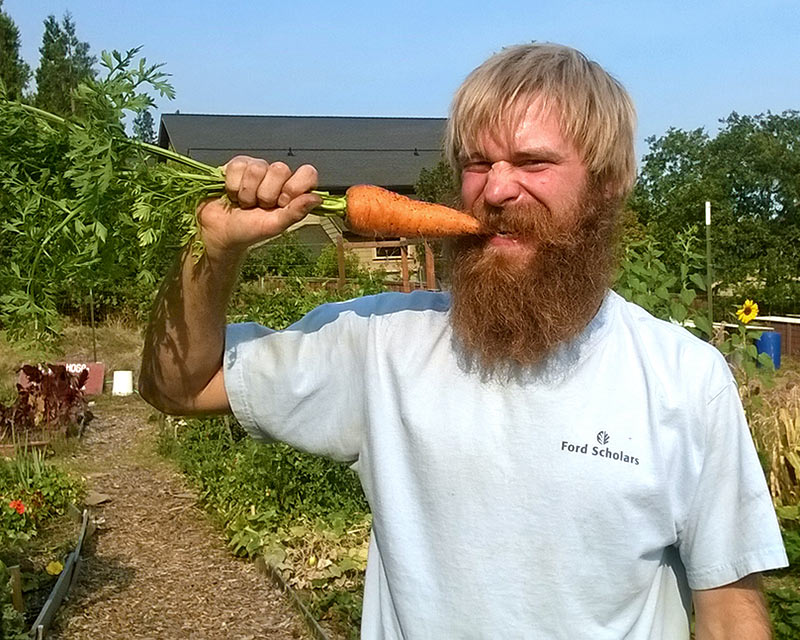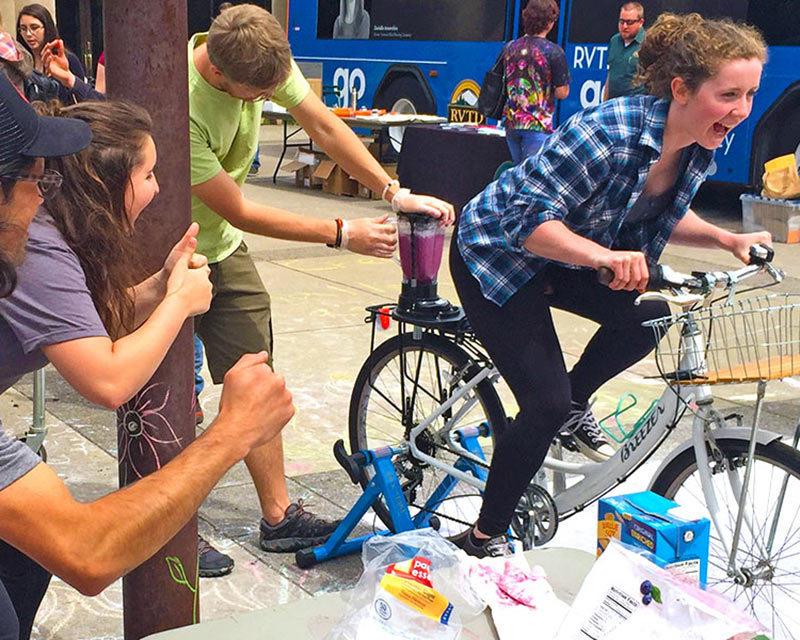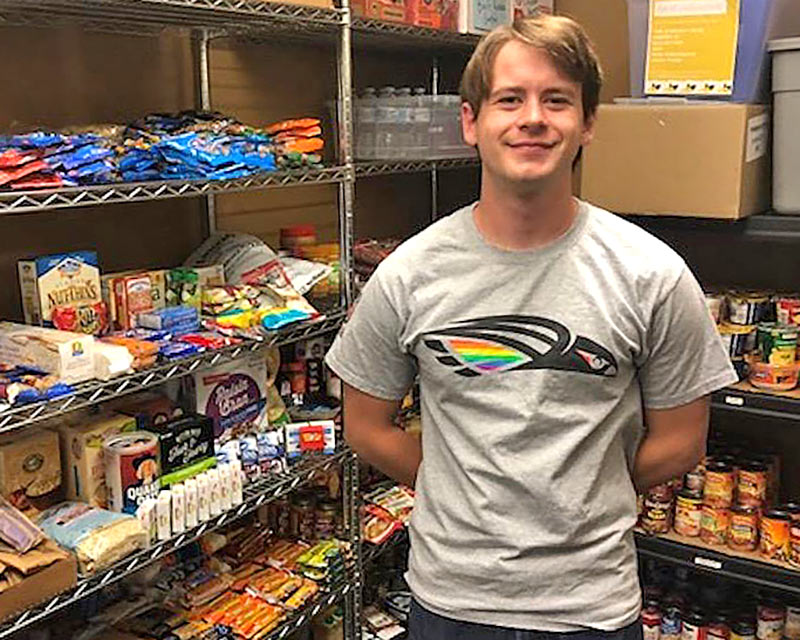Real Food Challenge
The purpose of the Real Food Challenge at Southern Oregon University is to divert money away from industrial farms and heavily processed foods and in turn move more money into organically grown sustainable food systems.
Get Involved
Join the Student Sustainability Team’s cadre of student coordinators, interns, and volunteers to make a difference on campus and in the community.
Student Food Pantry
The Student Food Pantry provides up to ten items per week to any SOU student. No student should have to choose between paying rent and buying food!
Contact the Student Sustainability Team
SOU Student Sustainability Center
Stevenson Union Rm 312
1250 Siskiyou Blvd.
Ashland, OR 97520
541.552.8346
ecos@sou.edu



